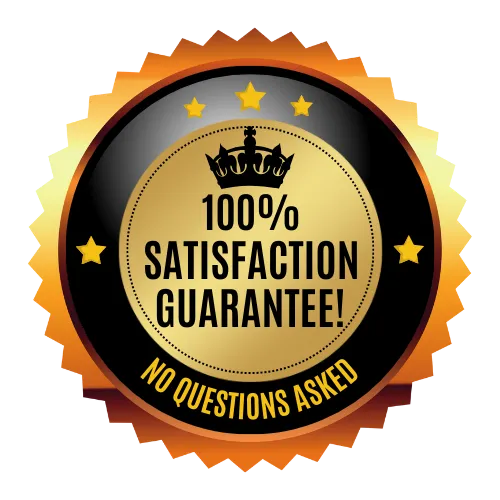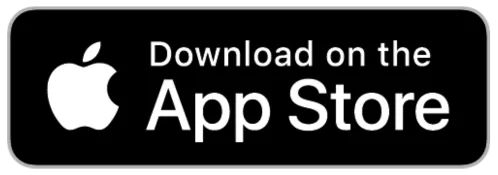Profit Producing Blog

Dakota Routh
Founder | CEO
Welcome to the Profit Producing Blog – your go-to hub for all things business, sales, and marketing. I'm Dakota Routh, and I bring 25 years of hands-on experience in the sales and marketing industry. Back in 2010, Google gave me a nod as a top 1% small business advertiser for lead and sales generation using Google Ad's. In 2023, I was awarded the SaaSpreneur Award. It was a great addition to my 2 Comma Club award for raking in a cool million through one single sales funnel.
But it's not just about awards – it's about sharing real-world insights. Hosting the "Profit Producing Activity (PPA) Podcast" is my way of giving you a front-row seat to the ever-evolving world of business and entrepreneurship.
I've turned all my knowledge and experiences into several blog articles, which you'll see below. As you dive into these blog articles, I hope that you find value in each article. If you have any questions, please reach out to my team by using the chat widget in the bottom right hand corner.
So, buckle up and get ready to glean some knowledge. These blog articles aren't just about my journey; they're about helping you carve your own path in the world of sales, marketing, and business innovation. Let's make some moves together!

How to Choose the Best Business Loan
A good idea plays an important role in being a successful entrepreneur and small business owner, but it’s not the only requirement. Unless you have the means to self-fund, the first step is to secure a loan.
The most common types of business loans
If you don’t have any experience in the world of financing, then you probably don’t realize that there are many different types of loans. let’s take a brief look at two of the most common types of loans, as well as the individual funding options within each category.
1. Small Business Administration loans
The Small Business Administration (SBA) offers different types of loans specifically for small business owners who meet certain requirements and qualifications. Here are the four major types:
7(a) loan program: By far the most basic and popular loan the SBA offers is the 7(a) loan. These loans can be used for a variety of things, including working capital, to purchase real estate, acquire or expand, and even refinance existing debt.
Microloan program: For brand-new or growing businesses, the SBA offers small loans in the form of microloans. These loans can be used for many of the same things a 7(a) loan can be used for; they just come in smaller loan amounts and have shorter repayment terms. The average loan is $13,000, and the maximum repayment term is six years.
CDC/504 loan program: The 504 loan program gives businesses a long-term fixed rate for major assets like real estate and equipment. The SBA generally provides 40% of the loan, while an approved lender covers as much as 50%. The borrower then has to put up the remaining percentage. The maximum 504 loan is $5.5 million, and details are negotiable to include 10- or 20-year maturity terms.
Disaster loans: Finally, there are SBA disaster loans. These loans – which max out at $2 million – can be used to purchase, repair or replace assets destroyed in a declared disaster.
2. Traditional loans
SBA loans are great – if you qualify. However, traditional loans offer even more opportunities for people who don’t meet the requirements or need something more flexible. Here are some different types of traditional loans.
Equipment loan financing: A lot of small businesses simply need a loan for equipment. With an equipment loan, you can purchase anything from tablets for your employees to new machinery in the warehouse and make monthly payments on the items instead of having to fork over all of the cash at once.
Line of credit: If your business is more unpredictable and you need cash some months but not other months, a line of credit is perfect. It just sits there until you need it, and you can take out just the amount you need.
Working capital loan: For many small businesses, the cyclical nature of revenue means there are some months when there isn’t enough money to keep the lights on. A working capital loan is a short-term solution that enables you to temporarily infuse cash into your business while you find ways to bring in more revenue.
Merchant cash advance: If you run a small business where you get lots of credit card transactions, a merchant cash advance can help keep money flowing. This type of loan is based on the volume of your monthly transactions and gives you an advance of up to 125% of your anticipated volume. You then steadily repay it over the next month with specific terms.
Invoice factoring: Invoice factoring is a unique way of increasing cash within your business by leveraging money that’s already owed to your business. It works like this: You sell any outstanding invoices you have to a factoring company in return for a lump sum (usually 70% to 90% of the total amount). You’re then able to use this cash as you see fit.
Business credit cards: In some cases, a simple business credit card can be used as a line of credit to fund business purchases. However, much like personal credit cards, business credit must be used with extreme caution and discipline; otherwise, costs can get out of hand.
Secured loans: A secured business loan is very much a traditional loan in the sense that it’s backed by an asset, such as a
Unsecured loans: An unsecured loan is the opposite of a secured loan in the sense that no collateral is required. This poses less risk for the business, but it also means you offset the risk in other ways – such as higher interest rates.
Term loans: A term loan is a very basic type of loan that operates much like a student loan or home mortgage. The business borrows a lump sum upfront and is then required to repay it in weekly or monthly installments over a predetermined period of time.
Personal loans: While it’s not always the first option business owners pursue, personal loans can be used for business purchases and expenses (so long as the lender doesn’t have restrictions that state otherwise). Personal loans are considered unsecured debt and are widely used for a variety of purposes.
4 tips for evaluating and choosing the right loan

Is your head spinning yet? Those were just a few examples of small business loans – many more exist. Here are some recommendations for choosing the right loan for your situation.
1. Become more self-aware.
Before you do anything else, spend time evaluating your business and how lenders see you. A quick credit check will help you understand your score, which is an important factor, but you also need to know your debt-to-equity ratio.
According to business consultant David Duryee, this is one of the most important metrics a lender analyzes. “It is a basic financial principle that the more you rely on debt versus equity to finance your business, the more risk you face,” he said. “Therefore, the higher the debt-to-equity ratio, the less safe your business [is].”
2. Consider the interest rate.
You obviously want to consider the interest rate, though this shouldn’t be the only determining factor. For example, if a $100,000 loan has repayment terms of five years, a difference of two percentage points really doesn’t matter that much in the grand scheme of things. It would, however, matter if the loan were for $1 million spread out over 20 years. Be smart about comparing interest rates, and give more weight to it when terms are higher.
3. Look at repayment terms.
Speaking of repayment terms, how much time do you have to pay off the loan? What does the payment schedule look like? Can you pay off the loan early, or do you have to wait until maturation? It’s easy for these to seem like tiny little details in the fine print of a loan, but they can save or cost you tens of thousands of dollars when it’s all said and done.
4. Consider application fees.
Are you aware that some lenders actually require you to pay to apply, while others don’t? Ask if any fees are associated with the application. Some lenders charge an application fee, while others charge fees for items tied into the application, such as the cost to run your credit report or get your collateral appraised.
5. Take your time.
You may feel like time isn’t on your side, but it’s OK to take things slowly. The absolute worst thing you can do is rush into this. Prematurely selecting a loan, only to figure out later that you chose the wrong one, can be devastating to your business. Be patient and carefully evaluate all of your options as you navigate the process.
By incorporating Level Up Pipeline into your marketing strategy, you can centralize and optimize your customer engagement processes. The platform's customizable templates and workflows cater to the unique needs of your business, providing a user-friendly experience. Efficiency is key in today's competitive landscape, and Level Up Pipeline empowers businesses to manage all aspects of their customer interactions seamlessly.
Dakota Routh
I'm Dakota Routh, an American entrepreneur, author, speaker, and internet personality. I'm the founder of Level Up Pipeline, a company that helps entrepreneurs and small businesses grow their sales. I'm also the author of three books, "Secrets of Social Media Marketing," "The Social Game," and "Grow Your Influence(rs)."

"No Risk Guarantee"
The Choice Is Yours
When you join Level Up, you'll have your choice of guarantees to choose from
Option 1: Start today and get a 30 day money back guarantee. If, for any reason, you're not 100% satisfied with your Level Up Membership within 30 days of your purchase, simply reach out to Member Support, and we'll gladly issue you a full refund for your monthly subscription. No questions asked.
Option 2: Start today and get a FREE Trial. No payment is due until the free trial is over.
*Memberships are month to month, no contracts!
Satisfaction Guaranteed • Cancel Anytime



